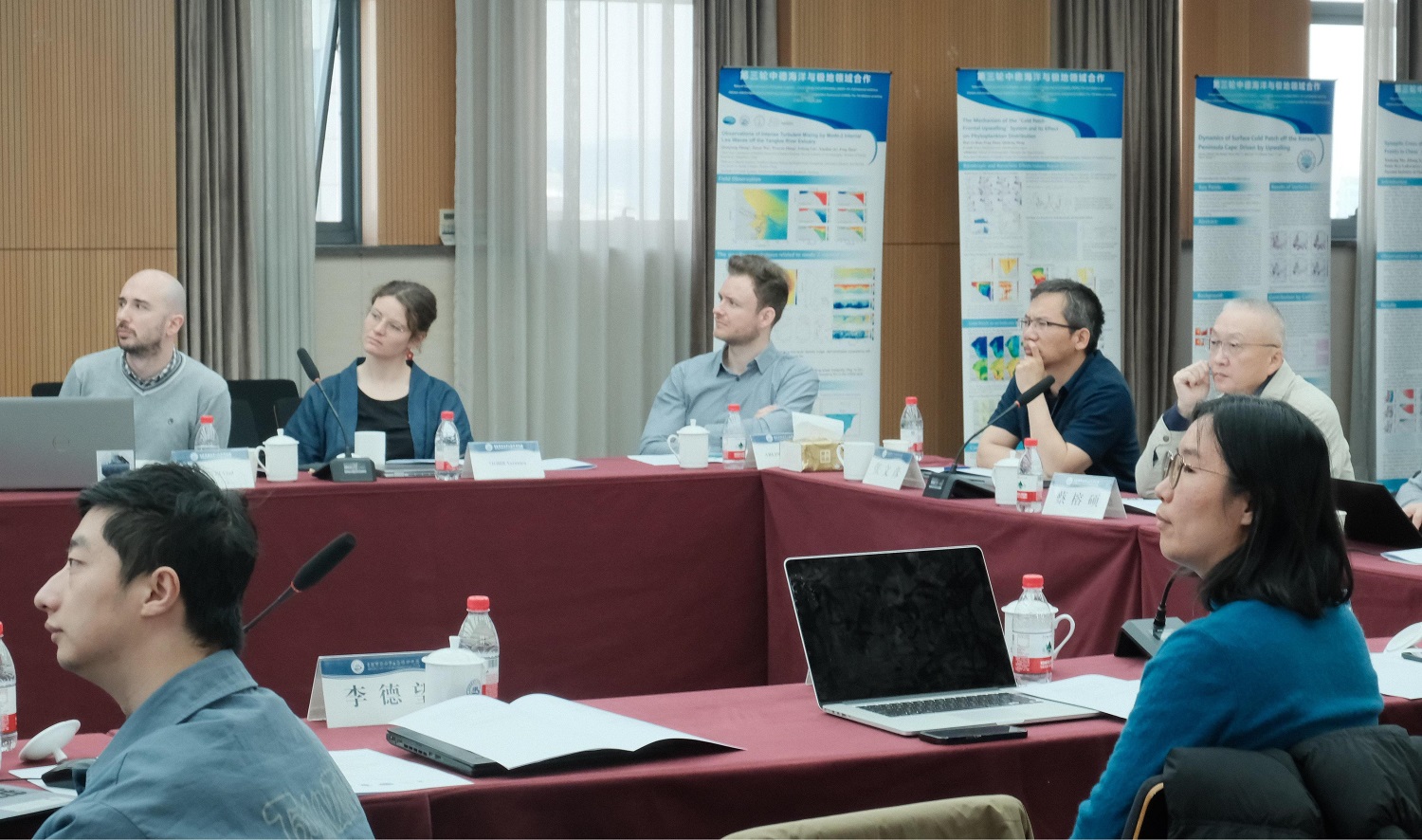

From March 31 to April 2, the 2nd Bilateral Workshop of the 3rd Sino-German Joint Project on Marine and Polar Cooperation “Natural Hazards and Marine Ecosystem Response – Causal Linkage and Predictability (NECO)” was held in Hangzhou. The workshop was organized by the State Key Laboratory of Satellite Ocean Environment Dynamics, and co-organized by the Ocean University of China, the Institute of Coastal Research, Helmholtz-Zentrum Hereon, and the Yangtze River Delta Marine Ecological Environment Field Scientific Observation and Research Station.
The workshop focused on ecological change processes such as natural disasters, marine carbon sinks, hypoxia, heat waves, and explored innovative applications of AI technology in marine disaster prediction and ecosystem response research. Over 50 experts and scholars from 10 research institutions in China and Germany attended the workshop.
Extensive discussions were held on the cross-impacts of marine dynamic processes and human activities on marine ecosystems. Multiple thematic sessions were established, including “Impact of Dynamic Processes on Organic Carbon Cycling in Marginal Seas”, “Sediment Dynamic Processes and Their Ecological Effects”, “Ecosystem Dynamics and Integrated Coastal Zone Management”, “Mechanisms and Impacts of Compound Marine Ecological Disasters”, “Carbon Burial Processes Driven by Human Activities and Nature”, and “Marine Disaster Prediction and Risk Management”. These sessions covered cutting-edge topics from marine carbon sinks, hypoxia and acidification mechanisms, ecological effects of extreme weather and climate events (such as typhoons and heat waves) to AI-assisted disaster prediction.
At the workshop, the project leaders from both China and Germany, Researcher Zhang Wenyan and Researcher Zhou Feng, introduced the overall progress and phased achievements of the project. Experts and scholars from both sides conducted in-depth exchanges on relevant research progress and technological application, promoting multi-disciplinary integration and high-level cooperation. The workshop also featured a special session for young researchers to exchange ideas and present posters, further stimulating their academic enthusiasm and enhancing mutual trust and cooperation between Chinese and German research teams.
This workshop not only deepened scientific research cooperation between China and Germany in key areas such as the ecological effects of marine disasters, the complex mechanism of hypoxia, acidification and carbon sinks, but also opened up new paths for promoting the organic integration of AI and dynamic mechanisms, laying the foundation for joint research in the future.

